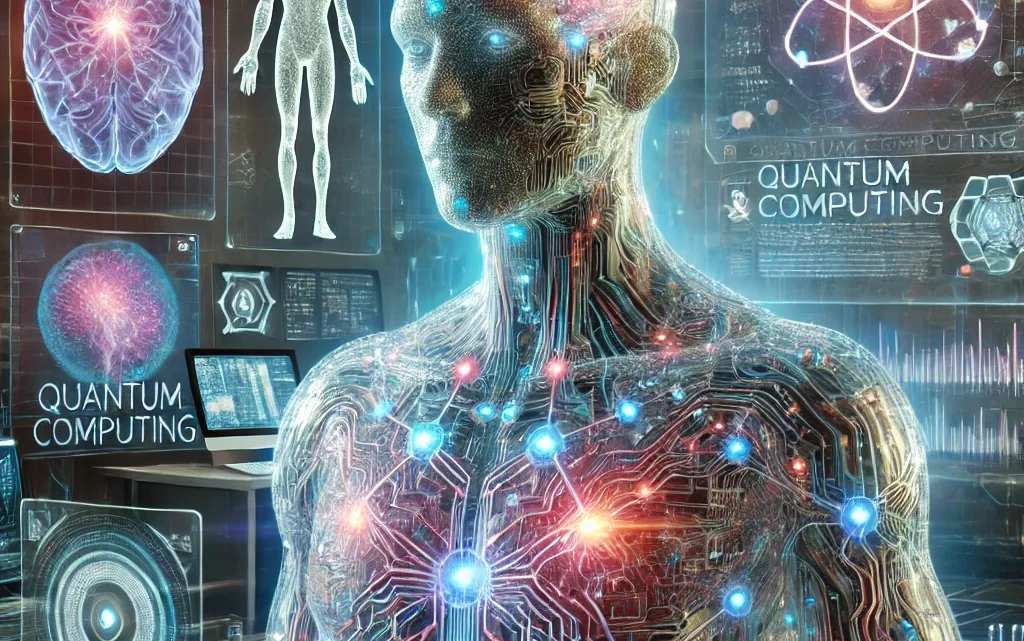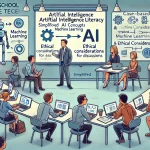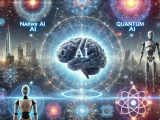
Organic AI: The Future of AI Inspired by Biology
March 27, 2025As AI evolves, researchers are looking beyond silicon-based systems to develop Organic AI—a form of artificial intelligence that mimics or integrates with biological processes. Organic AI could bridge the gap between artificial and natural intelligence, leading to more adaptable, efficient, and human-like machines.
What is Organic AI?
Organic AI refers to AI systems that either:
- Are inspired by biological intelligence (e.g., neuromorphic computing, brain-like AI)
- Are built using biological components (e.g., biocomputing, AI powered by living neurons)
- Interact with biological systems (e.g., brain-computer interfaces, AI-augmented biology)
How Organic AI Will Evolve
1. Neuromorphic Computing: Brain-Inspired AI
Traditional AI runs on silicon chips, but neuromorphic computing aims to replicate the structure and function of the human brain using spiking neural networks (SNNs). These energy-efficient AI systems process information more like neurons, enabling real-time learning and decision-making with lower power consumption.
2. Biological Computing: AI Powered by Living Cells
Some researchers are experimenting with biological computers—AI systems that use living neurons or DNA-based circuits instead of traditional hardware. For example:
- Cortical Labs has developed AI-powered chips that integrate real brain cells into a computing system.
- DNA computing leverages the immense storage capacity of DNA to perform AI calculations.
These systems could be far more energy-efficient and scalable than traditional AI.
3. AI-Integrated Brain-Computer Interfaces (BCIs)
BCIs like Neuralink and OpenBCI allow direct communication between the human brain and AI. Future Organic AI could enhance human cognition, restore lost brain functions, or enable telepathic-like communication. This fusion of AI and biology could lead to AI-augmented humans capable of processing vast amounts of information in real-time.
4. Self-Healing & Adaptive AI
Organic AI could repair itself, evolve, and adapt, similar to living organisms. AI systems built on biological substrates might be able to self-replicate, grow new connections, and heal from damage—unlike traditional silicon-based AI, which degrades over time.
5. Artificial Consciousness & Synthetic Life
A major goal of Organic AI is to create AI that truly thinks and feels like a human. Researchers are exploring whether organic-based AI systems could develop self-awareness, emotions, and creativity by mimicking the neural processes of the human brain.
Types of Organic AI
1. Neuromorphic AI
AI that mimics human brain neurons using specialized hardware like Intel’s Loihi and IBM’s TrueNorth chips. These chips allow for faster, more efficient, and brain-like processing.
2. Biocomputing AI
AI that runs on biological materials like living neurons, DNA, or proteins instead of silicon. These systems could be smaller, more powerful, and consume less energy.
3. AI-Augmented Biology
AI that integrates with biological systems, such as AI-controlled prosthetics, brain-implant AI, or synthetic biological intelligence that fuses AI with genetic engineering.
4. AI-Generated Lifeforms
Scientists are developing programmable organic lifeforms such as Xenobots, which are tiny living robots made from frog cells that can move and heal themselves. These could be the foundation for living AI in the future.
Challenges & Ethical Concerns
- Ethical implications: Should AI-powered organic life be considered “alive”?
- Security risks: Could Organic AI be hacked or manipulated?
- Unpredictability: Will biological AI evolve beyond human control?
- Regulatory frameworks: Who governs AI that integrates with biological systems?
The Future of Organic AI
The next decade will see significant advancements in neural computing, biocomputing, and AI-integrated biology. Some potential breakthroughs include:
- Brain-like AI with real-time learning abilities, reducing the need for pre-trained models.
- Human-AI symbiosis through advanced BCIs, allowing direct thought-based interactions with AI.
- Energy-efficient AI systems using organic components, reducing the environmental impact of AI.
- AI-powered synthetic biology to create new lifeforms that perform complex biological tasks.
- Self-evolving AI, capable of adapting to its environment in ways traditional AI cannot.
Final Thoughts
Organic AI could be the next frontier in artificial intelligence, leading to brain-like machines, AI-powered biocomputers, and even self-aware AI. Whether it enhances human intelligence or gives rise to a new form of life, Organic AI will challenge our understanding of intelligence, consciousness, and technology.


















